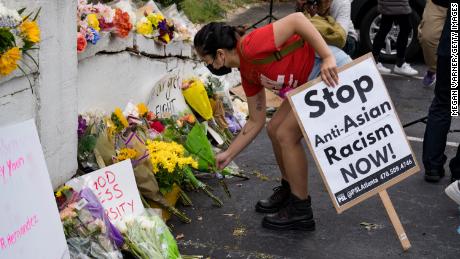Myanmar continues to struggle with the unrest that has been growing ever since the military took power of all three branches of government in a coup d’état on the 1st of February, 2021. After gaining power, the military detained democratically elected officials after claiming that the recent elections were rigged. Since then, there have been continuous protests that have escalated. At least 138 people have died.
A month and a half ago, Myanmar’s Military Commander-in-Chief Min Aung Hlaing took power of the government that has been steadily moving towards a democracy after ending its 50 years of military rule in 2011. In a televised speech, General Hlaing spoke about the need for a “true and disciplined democracy” and insisted that the military was on the side of the people.
Now that the military is back in power, they have announced a year-long state of emergency. Once the year is over, they will hold “free and fair” elections.
This coup comes after the Union Solidarity and Development Party, the opposition that was backed by the military, lost the parliamentary elections. The National League for Democracy (NLD), led by Aung San Suu Kyi, won in a landslide general election that took place in November last year. They won 396 out of 476 seats. The opposition claimed that the elections were rigged and they called for a revote. These claims were not backed by the electoral commission.
The takeover came just as Parliament was set to hold its first session after the elections. They were sent to approve the next government.
After the takeover the leaders of the NLD party, including cabinet members and chief ministers, were detained. Now Aung San Suu Kyi faces trial after she was accused of violating import restrictions for equipment such as walkie-talkies and spreading statements that could cause “fear or alarm to the public”. Additionally, she and the deposed President, Win Myint, are being charged for breaching COVID-19 restrictions. If convicted, they could face prison time for six and three years respectively.
Since the coup, the people of Myanmar have been taking to the streets to protest. As the numbers grew, the civil disobedience campaign gained momentum with medics, teachers, students and many others joining. Protesters are seen wearing red ribbons (the color of the NLD party) to show support for Suu Kyi, who is considered a symbol of democracy in the country.
Protesters have been met with tear gas and rubber bullets. This escalated over the weekend when military forces opened fire on peaceful protesters in multiple cities in an effort to suppress the month-long mass protests. Since the coup started, over 100 people have died, and many more, including journalists, writers, students and civilians, have been detained. A recent picture of a nun kneeling in front of the military, begging them not to shoot protesters has gone viral.
The UN World Food Programme warned of a serious oncoming economic crisis. Food and fuel prices have been rising steadily. Countrywide, the price for fuel has risen by 15% since February 1st. Amid the ongoing global pandemic, poverty has already risen, and by the end of 2020, eighty percent of households across the country reported a loss of about 50% of their income.
The coup also gained international attention and was condemned by many countries. The UN Secretary General called it a “serious blow to democratic reforms”. The UK and the US have imposed sanctions against the military. China, on the other hand, blocked a UNSC statement condemning the coup and has urged all sides to “resolve differences”.
Additionally, neighbouring countries such as Cambodia, Thailand, and Philippines have called it an “internal matter”.
Photo: Myitkyina News Journal / AFP – Getty Images






